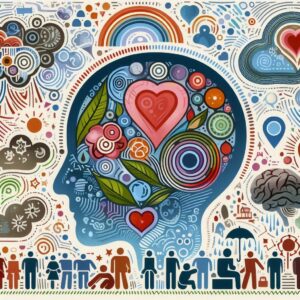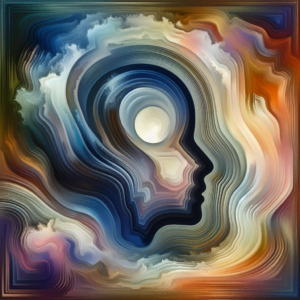The 101 on Mental Health: Understanding the Types of Mental Illness That Exist
Mental health impacts everyone in some way, so understanding the different types of mental illness is crucial. These conditions can range from mild to severe, but they all influence how a person thinks, feels, and behaves. This guide explores common mental illnesses, their symptoms, and available treatments—and encourages anyone in need to seek professional support.
Why Understanding Mental Health Matters

Mental health affects thoughts, feelings, and actions, and it can manifest in various forms, like anxiety, depression, or trauma. No one is immune—mental illness can touch people of all ages, genders, races, and backgrounds.
Understanding mental illness reduces stigma and helps people seek treatment sooner. Misconceptions often delay care, leading conditions to worsen. Symptoms can vary and include:
- Mood swings or irritability
- Difficulty sleeping
- Low energy
- Social withdrawal
- Trouble concentrating
Mental illness is a genuine medical condition, not a weakness, and it requires professional care. When we learn about these issues, we can support ourselves and others. If you’re struggling, reaching out to a counselor or mental health professional is a powerful first step toward healing.
Common Types of Mental Illness

Depression
Depression causes ongoing sadness, hopelessness, and a lack of interest in activities. It affects emotions, physical health, and daily life, but treatments like therapy and medication can help.
Anxiety
Anxiety brings overwhelming worry, fear, and physical symptoms such as a racing heart or trouble sleeping. In severe cases, it can lead to panic attacks, but it is manageable with the right care.
Bipolar Disorder
Bipolar disorder involves extreme mood swings—high-energy “manic” phases and low-energy depressive episodes. These shifts can disrupt daily life, but mood stabilizers and therapy can help manage symptoms.
Schizophrenia
Schizophrenia makes it hard to think clearly and interact with the world. Symptoms might include hallucinations or delusions. With medical care, many people can lead productive lives.
Personality Disorders
Personality disorders affect how individuals relate to others, often causing challenges in relationships and work. Therapy can help improve communication and coping skills.
Eating Disorders
Eating disorders disrupt eating habits and affect physical and emotional health. Early intervention is crucial to recovery.
Trauma
Trauma stems from distressing events like abuse, violence, or disasters. It can cause flashbacks, nightmares, and feelings of disconnection. Therapy offers strategies to reclaim a sense of safety.
Recognizing Symptoms and Getting Diagnosed

Symptoms of mental illness can include:
- Persistent sadness or hopelessness
- Difficulty concentrating
- Extreme mood swings
- Feeling detached from reality
- Avoiding social situations
- Physical issues like headaches or stomach pain
- Anxiety or panic attacks
- Risky behaviors like substance abuse
Diagnosis involves a mental health professional evaluating your medical history, symptoms, and behavior. Family or close friends may be consulted to provide a fuller picture. Mental illnesses can overlap with other health issues, making diagnosis and treatment plans more complex.
If you or someone you know shows signs of mental illness, scheduling an evaluation is a crucial step.
Treatment Options

Medication
Medications like antidepressants or mood stabilizers can alleviate symptoms and improve quality of life.
Psychotherapy
“Talk therapy” methods, such as cognitive-behavioral therapy (CBT), help individuals understand and manage their thoughts and emotions.
Hospitalization
For severe cases, like psychosis or suicidal thoughts, hospitalization provides intensive care and stabilization.
Support Groups
Connecting with others facing similar struggles offers a safe space for sharing and support.
Lifestyle Changes
Exercise, healthy eating, and good sleep routines can improve mental health. Practices like meditation or yoga complement medical treatments.
Take the First Step Toward Better Mental Health

Mental illness is manageable with the right treatment and support. If you or a loved one is struggling, reaching out to a professional can change your life for the better. Don’t hesitate to schedule an appointment today—taking that step could lead to a healthier, happier future.










